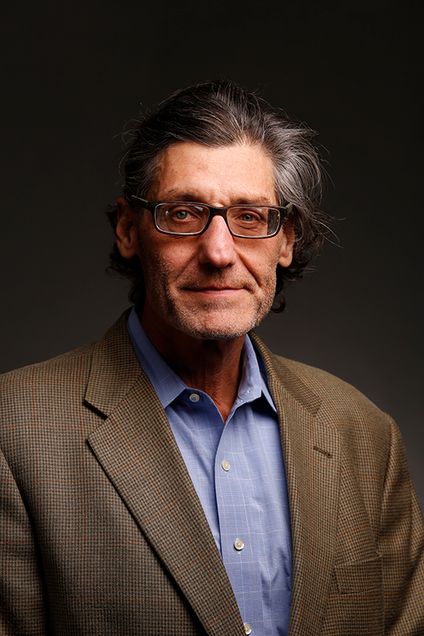Opening Doors in Data Science
Steven Keith Platt (’83), a tax lawyer turned AI expert, is working to introduce students from underrepresented communities to the growing field of data science.

Photo by Mars via Unsplash
Opening Doors in Data Science
Steven Keith Platt (’83), a tax lawyer turned AI expert, is working to introduce students from underrepresented communities to the growing field of data science.
Last summer, 100 middle and high school students from Chicago’s West Side neighborhoods logged into online classes focused on the intersection of data science and sports. During the six-week summer camp, they explored sensors and wearable technologies and ultimately designed and programmed their own piece of movement-tracking tech. The classes were a collaboration between the Chicago Parks District and Black Kids Predict (BKP), an organization cofounded by BU Law graduate Steven Keith Platt.

BKP’s mission is to help close the diversity gap in data literacy. According to the organization’s website, BKP curriculum “expands 6th-12th grade kids’ idea of data and computer sciences from a geeky desk job they don’t want to a superpower that can help them predict and improve fun outcomes in the real world.”
Platt (Questrom’79, LAW’83, LLM’86) teaches artificial intelligence (AI) and applied analytics at Loyola University Chicago and previously taught at nearby Northwestern University. During his years as a lecturer at Northwestern, he says, he noticed a distinct lack of diversity among the students in his courses. Subsequent research showed the problem wasn’t unique to his campus: in the US, Black and Hispanic students have long been underrepresented in computer science, engineering, and related programs.
“Data science is a burgeoning field with tons of great opportunities,” Platt says. Recruiters contact him nearly every day, he adds, looking for students to fill their high-paying positions.
Wanting all young people to have access to these opportunities, Platt reached out to industry colleagues two years ago and asked for their help creating a pipeline to bring students from underrepresented communities into their growing field.
“We put our heads together and did a whole bunch of research and came up with a concept, which is that you’ve got to intercept youth at a pretty early age,” Platt says.
One of the core pillars of BKP is linking data literacy to outcomes in the real world. We know that data and data science on its face value is not exciting to a 12-year-old. However, if we can show how data links to areas of their lives that they find fun—like sports, music, dance, etc.—we can open up a whole new conversation and curiosity about how data relates to what gets kids excited.
That’s why BKP—the organization Platt and his colleagues eventually created—focuses on students as young as middle school. Platt and his BKP cofounders knew they couldn’t expect sixth graders to sit through college-style lectures, so they searched for an interesting angle to catch their target audience’s attention. They decided to use sports and sport technologies (like a smart basketball that provides shooting analytics) as a fun and relatable hook for drawing kids into data science.
“One of the core pillars of BKP is linking data literacy to outcomes in the real world” says Zipporah Allen, BKP cofounder and a senior marketing executive with experience at brands such as McDonald’s and Taco Bell. “We know that data and data science on its face value is not exciting to a 12-year-old. However, if we can show how data links to areas of their lives that they find fun—like sports, music, dance, etc.—we can open up a whole new conversation and curiosity about how data relates to what gets kids excited.”
Last year’s collaboration with the Chicago Parks District was a success, and BKP plans to offer similar classes again this summer through an expanded network of partners, including Camp Kuumba, a summer program aimed at creating opportunity for Black students in the Chicago suburb of Evanston. Platt hopes these summer camps are just the beginning. BKP is adding members to its board, he says, and is in talks with more potential partners, including the Chicago Bulls, Chicago Bears, and Indiana Pacers.
Platt discovered his passion for data science two decades ago. He began his career practicing tax law and then worked in investment banking before launching a consulting firm focused on retail analytics in 2001. He started teaching in 2014. In his applied AI course at Northwestern, students learned about how AI can be applied in retail settings to solve real problems for real clients—helping the clothing retailer H&M predict how many dresses it would sell in different sizes and helping the grocery service Peapod forecast delivery volumes.
“I’ve always been analytics oriented,” Platt says. From his undergraduate days as a finance and marketing major to his years in tax law, he’s been interested in mathematics and technology. When he discovered analytics and AI, he knew he’d found a field that would capture his attention for a long time.
“The field is evolving so rapidly. It constantly changes,” he says. “It requires a ton of effort to stay on top of, and I find that really intellectually challenging and fulfilling.”
Teaching data science to newcomers is especially rewarding.
“You have to know about technology, statistics, linear algebra, calculus, algorithms, modeling, and all that fun stuff,” Platt says, “so it’s a very complex field in certain respects.” Breaking down that complexity enough to teach it to college students, he says, has been a massive challenge. Making the field accessible to middle schoolers will require even more energy and creativity, but Platt and his BKP colleagues believe the effort will be worth it if they can help diversify the data science profession—or simply expose more kids to the idea that data is a powerful tool, not just in sports, but in every industry.
